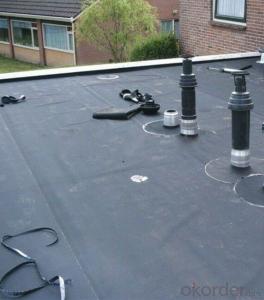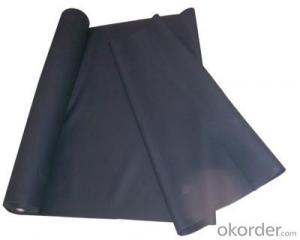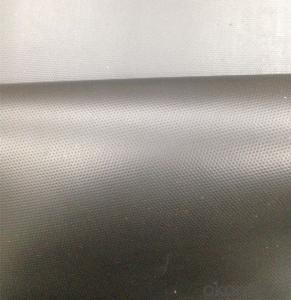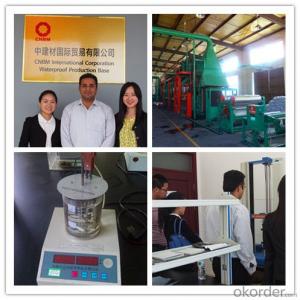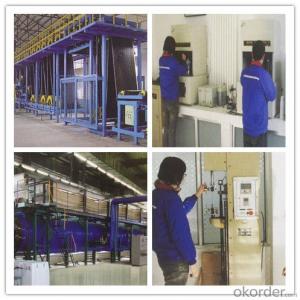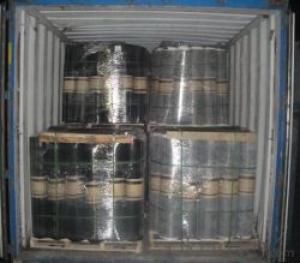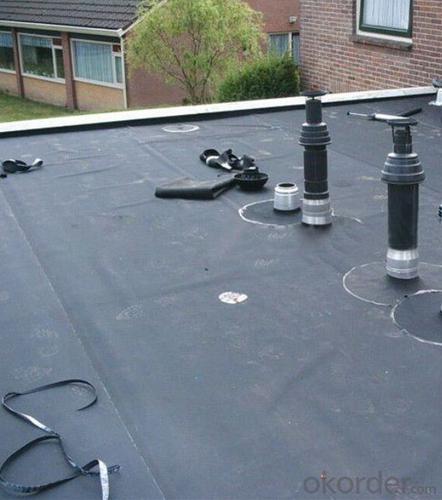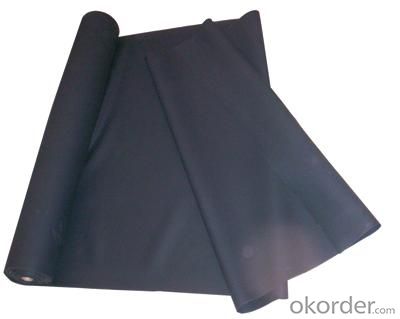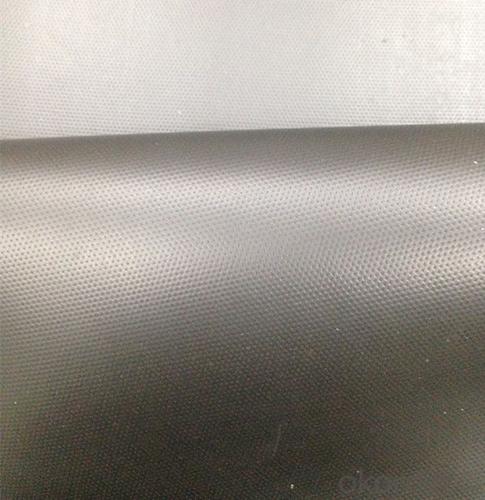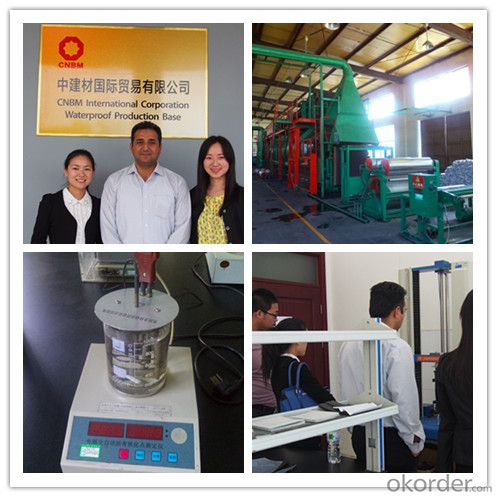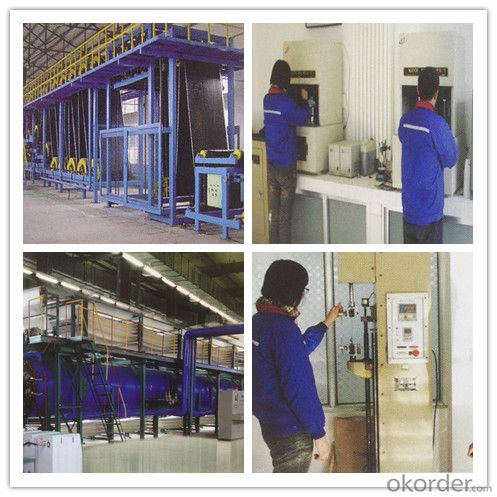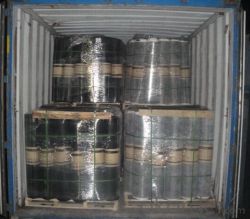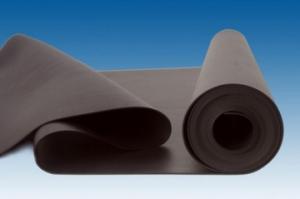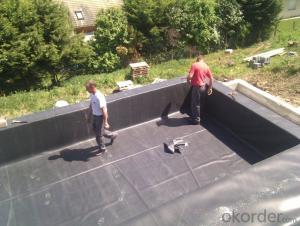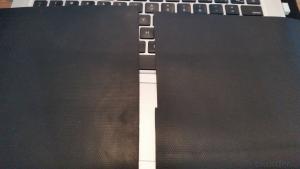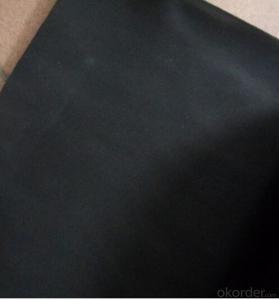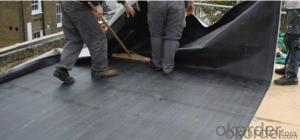EPDM Waterproof Rubber Membrane for Roof Basement Pond Liner
- Loading Port:
- Qingdao
- Payment Terms:
- TT or LC
- Min Order Qty:
- 3100 m²
- Supply Capability:
- 200000 m²/month
OKorder Service Pledge
OKorder Financial Service
You Might Also Like
EPDM Rubber Waterproof Membrane for Roof Basement Pond Liner
Instruction for EPDM Membrane:
EPDM waterproof membrane is made from ternary ethylene-propylene rubber,which is designed for waterproofing of exposed and non-exposed applications. EPDM waterproof membrane is of high elasticity among high polymer waterproof materials and becomes a world-popular waterproofing material.
CNBM own the wold-advanced equipment of cold feeding extrusion and continuous vulcanization technology. With the best performance among high polymer waterproof materials, EPDM is of exceptional elasticity and will not split or cracked under normal building movement.
EPDM Membrane Features:
1. Great tensile strength,long-range elasticity and aging resistant.
2. Excellent heat reisistant and can be used under -70°C~~+110°C .
3.Good anti-corrosion, ultraviolet resistant, root penetration resistance
4.Long life use over 50 years and used longer 100 years or more under the condition of buried in the ground.
5.Light and easy to install.
EPDM Membrane Applications:
1,Roofs, Basement, Toilet
2,Industrial and civil building waterproofing
3,Geosynthetic liner for swimming pool, channels, irrigation system
4,Especially suit for projects with high requirements in durability, anti-corrosion anddeformation
EPDM Membrane Specifications:
-Width of roll: 1.2m, 2m, 4m
-Length of roll: 20m, 30m or customized
-Thickness of membrane: 1.2mm, 1.5mm, 2mm
-Type: vulcanized EPDM or welding EPDM
EPDM Membrane Technology Data:
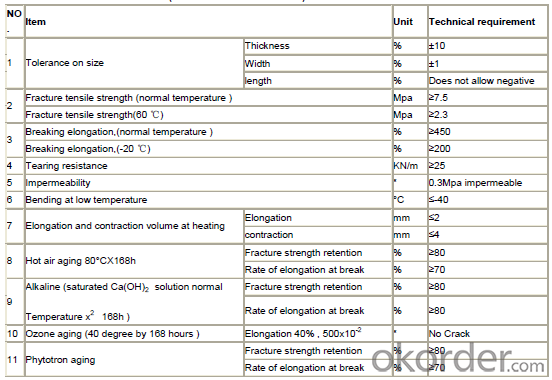
FAQ:
1. Is your EPDM waterproof membrane the real rubber?
Yes, our EPDM membrane is made from top quality rubber, which is imported from America. We support samples for testing, or testing in our factory.
2. How's your products quality?
Our EPDM is with the top quality at home and abroad. Our quality is much higher than Chinese standard. Our product is widely used in Chinese Central government projects. And it's also accpted by customers all over the world, such as EU, USA, Astrulia, etc.
3. What's the service life of your EPDM membrane?
The service life of our EPDM membrane is more than 50 years.
4.What's your MOQ?
Our MOQ is 3000M2.
5. What's your product ability of EPDM membrane?
We own the largest EPDM production line in China. Our product ability of EPDM membrane reaches 2 million square meter per year.
EPDM Membrane and Factory Photos:
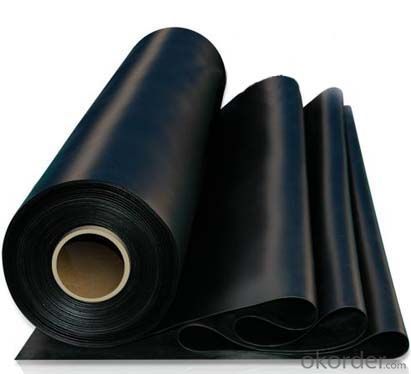
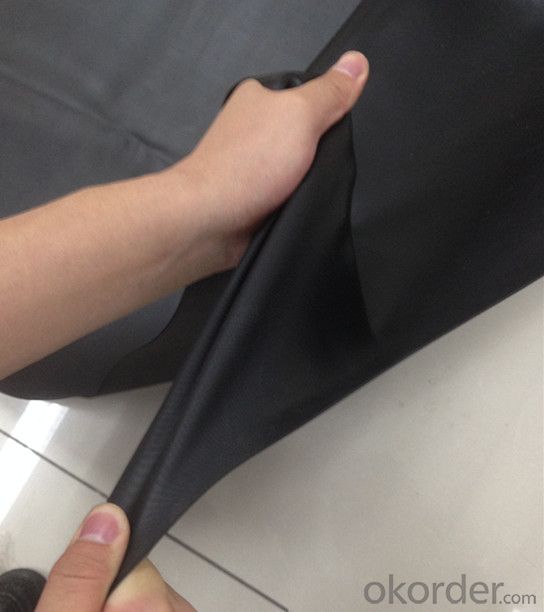
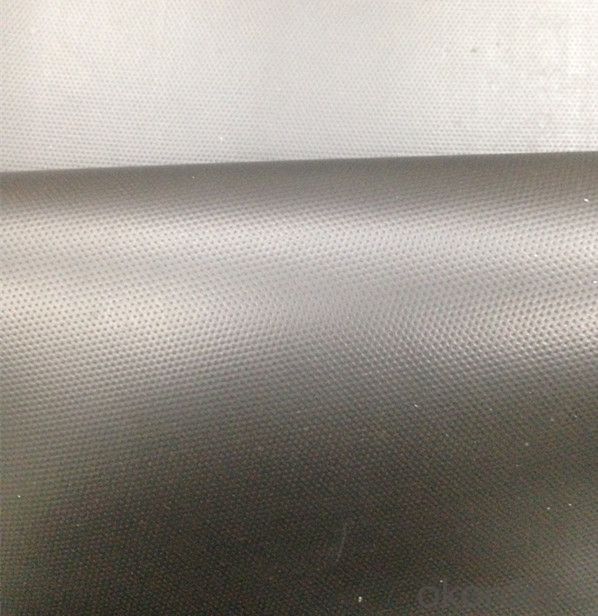
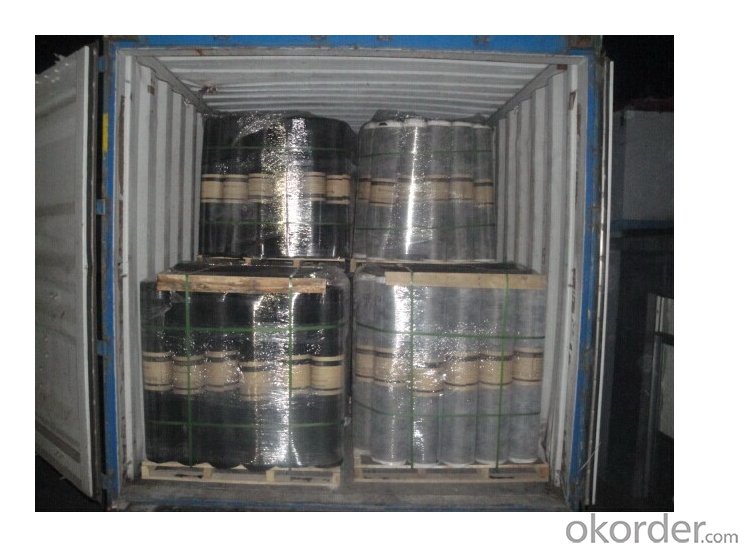
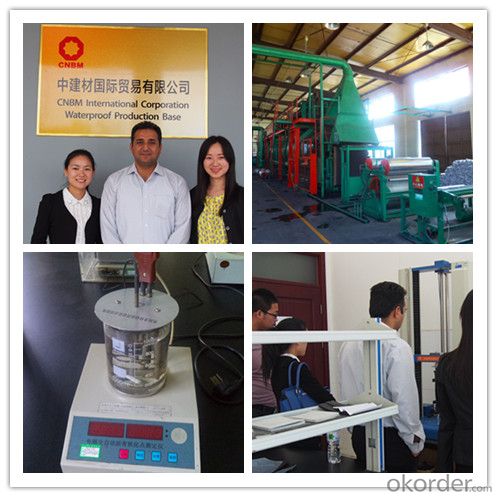
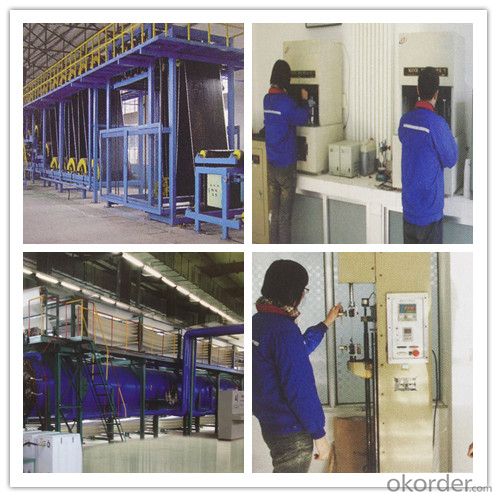
- Q: Can a waterproofing membrane be used on storage tanks?
- Yes, a waterproofing membrane can be used on storage tanks to prevent water leakage and protect the tank from corrosion.
- Q: Can a waterproofing membrane be used on PVC roofs?
- PVC roofs, commonly found in commercial and residential buildings, are known for their durability and resistance to weathering. However, like all roofing materials, they can develop leaks and cracks over time. To combat this issue, a waterproofing membrane can be applied to PVC roofs. This membrane, such as EPDM or TPO, is flexible and can easily adhere to the PVC surface, forming a seamless and watertight barrier. It is crucial to ensure that the chosen waterproofing membrane is compatible with PVC roofs and to carefully follow the manufacturer's instructions for proper installation. Additionally, regular maintenance and inspections are highly recommended to promptly detect and address any potential problems before they worsen.
- Q: Can a waterproofing membrane be used for bridges or parking decks?
- Yes, a waterproofing membrane can be used for bridges or parking decks. Waterproofing membranes are commonly used in these structures to protect them from water damage and extend their lifespan by preventing water infiltration and corrosion. The membrane acts as a barrier, preventing water from seeping into the structure and causing structural deterioration or compromising the integrity of the bridge or parking deck.
- Q: Can a waterproofing membrane be installed by a homeowner or is professional installation required?
- Professional installation is typically recommended for waterproofing membrane installation. This is because it involves complex techniques and specialized equipment that homeowners may not have. Additionally, professionals are trained to assess and address specific waterproofing needs, ensuring a more reliable and effective installation.
- Q: Can a waterproofing membrane be used in conjunction with drainage systems?
- Yes, a waterproofing membrane can be used in conjunction with drainage systems. The membrane provides a barrier to prevent water penetration, while the drainage system helps to channel and remove any water that may accumulate. This combination ensures effective and comprehensive waterproofing for various applications such as basements, roofs, and underground structures.
- Q: Are waterproofing membranes resistant to salt damage?
- Waterproofing membranes are generally resistant to salt damage, as they are specifically designed to create a barrier against moisture and water infiltration, offering protection against saltwater as well. Saltwater can be highly corrosive and cause harm to different materials, but waterproofing membranes are typically constructed using materials that can withstand the corrosive effects of salt. These membranes often consist of reinforced PVC, modified bitumen, or EPDM rubber, all of which have proven their durability and reliability in saltwater environments. In fact, waterproofing membranes are commonly used in areas like basements, swimming pools, and marine structures, where they are regularly exposed to saltwater. Thus, it can be concluded that waterproofing membranes are generally resistant to salt damage and effectively shield against saltwater infiltration.
- Q: Can a waterproofing membrane be used in bathrooms?
- Indeed, bathrooms can benefit greatly from the utilization of a waterproofing membrane. It is strongly advised to employ such a membrane in bathrooms as a preventive measure against water-related harm and leakage. Typically, this membrane is applied to both the walls and floors, establishing a protective barrier that inhibits water infiltration, subsequently averting structural deterioration or the proliferation of mold. This is particularly crucial in areas of heightened water exposure, such as showers and the vicinity of bathtubs. These waterproofing membranes are engineered to endure moisture and offer enduring safeguarding, thereby assuring the soundness of the bathroom and prolonging its longevity.
- Q: Can a waterproofing membrane be used for below-grade parking garages?
- Yes, a waterproofing membrane can be used for below-grade parking garages. In fact, it is highly recommended to use a waterproofing membrane in these types of structures to protect them from water infiltration and moisture damage. Below-grade parking garages are particularly vulnerable to water penetration due to their location underground. A waterproofing membrane acts as a barrier against water, preventing it from seeping into the structure and causing damage to the concrete, reinforcing steel, and other materials. The membrane is typically applied to the exterior walls and floor of the parking garage, providing a seamless and watertight seal. It is important to choose a high-quality and durable waterproofing membrane that is specifically designed for below-grade applications to ensure long-term protection against water ingress. Additionally, proper installation by trained professionals is crucial to ensure the effectiveness of the waterproofing system.
- Q: Are there any limitations to using a waterproofing membrane?
- There exist certain limitations when using a waterproofing membrane. To begin with, although waterproofing membranes are successful in preventing water penetration, they do not always serve as a solution for structural problems that may result in leaks. In the presence of underlying issues with the structure, such as cracks or gaps in the foundation or walls, solely relying on a waterproofing membrane may not sufficiently address the problem. Furthermore, the installation of a waterproofing membrane necessitates thorough surface preparation, which can be time-consuming and expensive. The surface must be meticulously cleaned, dried, and cleared of any debris or contaminants for the membrane to adhere properly. Inadequate surface preparation may lead to improper adherence of the membrane, potentially causing it to fail in providing effective waterproofing. Moreover, waterproofing membranes are prone to damage during installation or afterwards if not adequately maintained. The membrane can be punctured or torn by sharp objects or heavy equipment, thereby compromising its effectiveness. Regular inspections and maintenance are imperative to ensure the membrane remains intact and in good condition. Additionally, waterproofing membranes have a limited lifespan and can deteriorate over time. Exposure to UV radiation, extreme temperatures, or harsh chemicals can degrade the membrane, reducing its ability to prevent water penetration. Regular inspections and potential replacement may be necessary to uphold the integrity of the waterproofing. Lastly, not all structures or environments are suitable for waterproofing membranes. Certain membranes may not be compatible with specific substrates or may not withstand high hydrostatic pressure. It is crucial to consult a professional and select the appropriate membrane type for the specific project and conditions. In conclusion, while waterproofing membranes can effectively safeguard structures from water damage, it is essential to acknowledge their limitations and ensure correct installation and maintenance to optimize their performance.
- Q: Can a waterproofing membrane be used for a stadium roof structure?
- Yes, a waterproofing membrane can be used for a stadium roof structure. A waterproofing membrane is a protective layer that prevents water from penetrating the roof and causing damage. It is typically made of materials such as rubber or synthetic polymers that are resistant to water. In the case of a stadium roof structure, a waterproofing membrane can be used to ensure that the roof remains watertight and prevents any leaks or water damage. This is particularly important for stadiums that have open-air or retractable roofs, as they are exposed to the elements and are more susceptible to water infiltration. A waterproofing membrane can be applied to various types of stadium roof structures, including metal, concrete, or even fabric roofs. It is typically installed beneath the roofing material, acting as a protective barrier against water. By preventing water from seeping into the roof, the membrane helps to extend the lifespan of the roof and protect the interior of the stadium from water damage. Additionally, a waterproofing membrane can also provide other benefits for a stadium roof structure. It can help to improve energy efficiency by reducing heat loss or gain through the roof. Some membranes also offer UV resistance, which helps to protect the roof from damaging ultraviolet rays. Overall, using a waterproofing membrane for a stadium roof structure is a practical and effective solution to ensure the roof remains watertight, durable, and protected from water damage.
Send your message to us
EPDM Waterproof Rubber Membrane for Roof Basement Pond Liner
- Loading Port:
- Qingdao
- Payment Terms:
- TT or LC
- Min Order Qty:
- 3100 m²
- Supply Capability:
- 200000 m²/month
OKorder Service Pledge
OKorder Financial Service
Similar products
Hot products
Hot Searches
Related keywords
